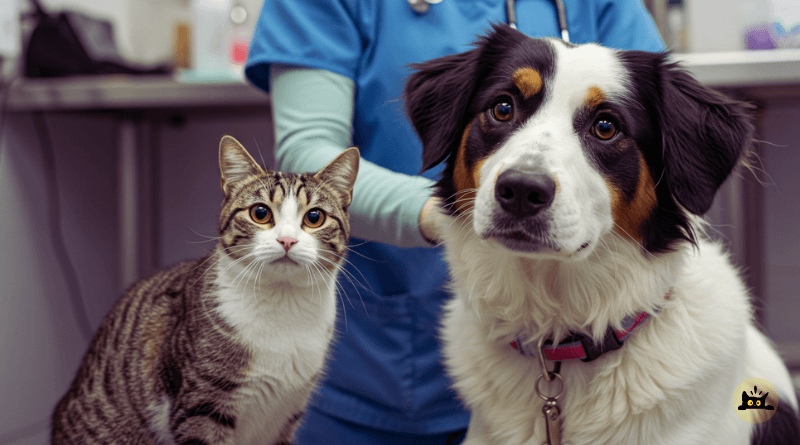Early detection isn’t just a medical term; it’s a simple idea that can really make a difference in our everyday lives. Whether it’s for our own health or that of our pets, noticing small changes before they get worse can lead to easier, quicker help and better recovery chances.
What Is Early Detection?
Early detection means catching health problems when they first begin to show. Instead of waiting until something gets so serious that treatment becomes complicated, you spot early signs those small changes in behavior or appearance and get help right away. For example, if your pet starts to lose interest in playing or shows a little limp, these could be the first signs that something isn’t right. The same goes for us; if you feel unusually tired or notice a slight weight change, it might be your body’s way of saying a check-up is needed.
Why It Matters
Catching a health problem early stops it from getting worse. When problems are dealt with in their early days, treatments tend to be simpler and recovery is often quicker. Visiting your vet or doctor regularly means that even little issues won’t turn into big ones. Taking action before the problem escalates can mean easier treatments like simpler medications instead of heavy-duty procedures and a better chance of getting back to normal quickly. In both pets and people, early help brings peace of mind and saves money by avoiding emergencies later on.
Everyday Signs to Watch
It may sound simple, but the little changes in our routine or in our pet’s routine can be important clues. Here are some everyday signs to watch for:
- Change in Energy: A pet that usually loves to play suddenly becomes lethargic or a person who feels unusually drained might be signaling a hidden problem.
- Behavior Shifts: Notice if your pet becomes less social or if your mood or habits change without a clear reason.
- Appetite Changes: If your pet starts eating less or more, or you begin experiencing unexpected fluctuations in weight, it’s worth a closer look.
- Appearance Changes: For pets, a dull coat or an unsteady step can be big hints. For people, sudden changes in skin tone or persistent issues can be early indicators.
- Other Small Signs: Sometimes it’s just a tiny change a little cough, a slight limp, or irregular sleep that gives you the first hint that something may be off.
These signs are not meant to scare you; rather, they help bring attention to details that might otherwise be overlooked.
Simple Steps to Take
It’s important to act quickly when you notice any change. Here’s what you can do:
- Keep a Note: Write down what you observed, even if it seems small. This can help your doctor or vet understand the sequence of events.
- Schedule a Check-Up: Whether it’s with your doctor or your vet, getting a professional opinion sooner rather than later can make all the difference.
- Stay Calm: Finding a small sign isn’t a cause for panic it’s simply an opportunity to catch a problem early.
- Follow Simple Advice: Your veterinarian or doctor might suggest easy ways to help, like a simple at-home fluid treatment if needed, or small changes in daily habits.
By following these basic steps, you can be confident that you’re taking charge of your health or that of your pet.
Keeping Up With Regular Health Checks
Even if nothing seems wrong, regular health visits are key. Routine check-ups are like preventive measures that catch issues you might miss by just observing day-to-day. A short visit to your doctor or vet can uncover problems early, before they become noticeable. Just like changing a lightbulb before it burns out, a little regular monitoring goes a long way in keeping things running smoothly.
Modern tools make these check-ups even more helpful. Better tests in vet clinics and smart computer programs in hospitals now help in reading medical pictures and spotting issues. This means that whether you’re looking after a pet or yourself, science and care are teaming up to keep everyone healthier.
A Simple Reminder for Healthy Living
The idea behind early detection is simple: watch closely and act quickly when anything seems off. By paying attention to little changes and visiting health professionals regularly, you put yourself and your pets in the best position to enjoy a long, healthy life. It’s all about staying aware of small signs whether it’s your pet’s playful energy or your own day-to-day feeling and responding with simple actions that can prevent bigger problems in the future.
In the end, early detection saves lives by offering a chance to solve health issues while they’re still small. When you make a habit of regular checks and gentle observations, you are not only taking good care of yourself but also ensuring that your furry friends are safe and happy. Remember, a little attention today means fewer worries tomorrow.
Sources : National Animal Supplement Council, Morris Animal Foundation, Blue Cross for Pets (UK)
This category also contains another article you might find interesting : My Secret for a Pet’s Super Shiny Coat

